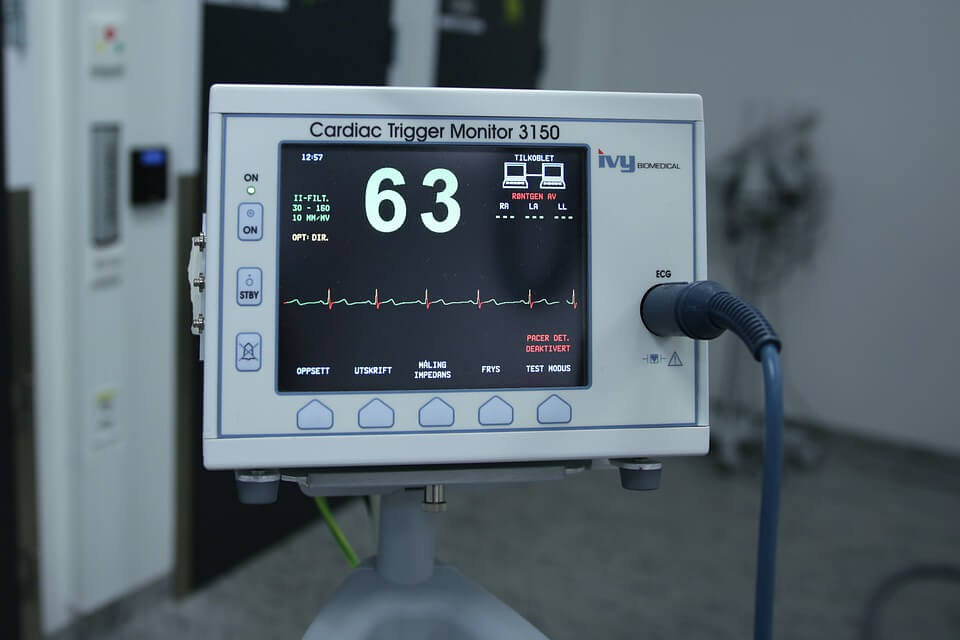HIGH BLOOD PRESSURE: UNEXPECTED SYMPTOMS OF HYPERTENSION

HIGH blood pressure, also known as hypertension, is a common but concerning health condition which, if left untreated, can result in fatal illness. According to experts, there are some “unexpected” symptoms that could be an important warning sign.
High blood pressure or hypertension impacted an estimated around 26 percent of the world’s population. Despite this, some of its symptoms can be somewhat “unexpected”, with sufferers not realising hypertension is the cause of their ailments.
According to health experts, there are some important warning signs people should be aware of.
People who think they are suffering from symptoms associated with hypertension are urged to visit their doctor as soon as possible.
Left untreated, high blood pressure can lead to a heart attack or stroke.
WHAT ARE SOME ‘UNEXPECTED SYMPTOMS’ OF HIGH BLOOD PRESSURE?
Lead pharmacist at Medino, Giulia Guerrini told Express.co.uk that some signs of high blood pressure can often be mistaken for symptoms of other illnesses.
She explained: “High blood pressure, also known as hypertension, can often lead to you experiencing some unexpected symptoms that commonly occur from other illnesses.”
Experts warn there are some “unexpected” signs of hypertension, such as nosebleeds in certain cases.”
“Difficulty breathing and chest pains are some of these symptoms, alongside an irregular heartbeat, vision problems and fatigue.”
Lead GP at digital healthcare provider Livi, Dr Rhianna McClymont, also noted some rather unexpected symptoms which, although uncommon, can also crop up.
She told Express.co.uk: “Some people may experience headaches, nosebleeds, blurred vision, chest pain, shortness of breath or dizziness.”
However, in some cases, the illness may have no signs at all which is what can make it so dangerous.
This is why it is so important to have your blood pressure taken frequently.
Ms Guerrini said: “Hypertension is often known as the silent killer, as many don’t realise that they’re suffering with it until it’s too late.”
“There aren’t many warning signs of hypertension, as the symptoms appear after hypertension has been severe for an extended period of time.”
“UNEXPECTED” WARNING SIGNS OF HYPERTENSION
- Difficulty breathing
- Chest pains
- Irregular heartbeat
- Vision problems
- Fatigue
- Nosebleeds
- Dizziness
- Headaches
CAN HIGH BLOOD PRESSURE SYMPTOMS BE A SIGN OF SOMETHING ELSE?
According to Dr McClymont high blood pressure can actually be caused by another medical condition.
In many cases, this can be extremely dangerous.
Dr McClymont told Express.co.uk: Sometimes high blood pressure is the consequence of another underlying medical condition.
“This is known as secondary hypertension. For example, an excessive production of hormones from the adrenal glands can cause high blood pressure.”
“Conditions that cause secondary hypertension include diabetes, kidney disease, obstructive sleep apnoea and pregnancy.”

HOW CAN YOU REDUCE YOUR RISK OF HIGH BLOOD PRESSURE?
There are a number of natural ways patients can reduce their risk of high blood pressure.
According to Dr McClymont, many of these are rooted in dietary changes.
She advised: “Eat more fruit, vegetables and whole grains.”
“Studies show that the DASH (Dietary Approaches to Stop Hypertension) and Mediterranean diets can help manage blood pressure as well as cholesterol and lower your risk of heart disease.
“Both diets are rich in fruit, vegetables and whole grains, and low in saturated fat and red meat.”
Lifestyle changes can also be crucial when it comes to lowering blood pressure.
Ms Guerrini explained: “There are many ways to reduce your risk of high blood pressure, some more well-known than others.”
“It’s common knowledge that staying at a healthy weight, being active and not smoking can all help towards reducing high blood pressure.”
“Limiting the amount of caffeine and alcohol that you consume will also help reduce your risk.”
” Reducing your stress levels can also help too: try focusing on issues you can control to reduce your stress, alongside avoiding stress triggers.”
“The best way to reduce your risk of high blood pressure is to monitor your blood pressure regularly and if you notice any changes, speak to your doctor as soon as possible.”
@ Express.co.uk

